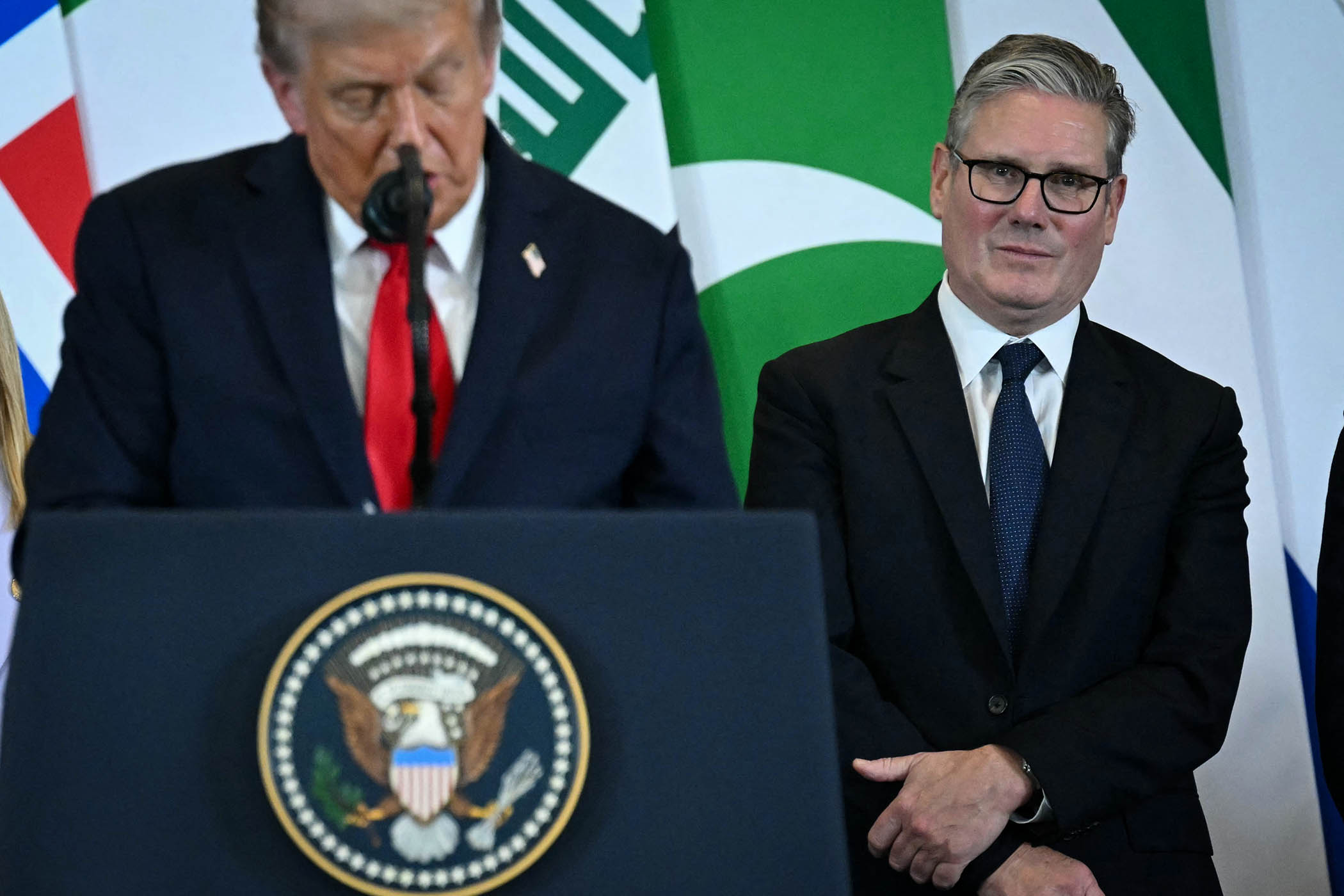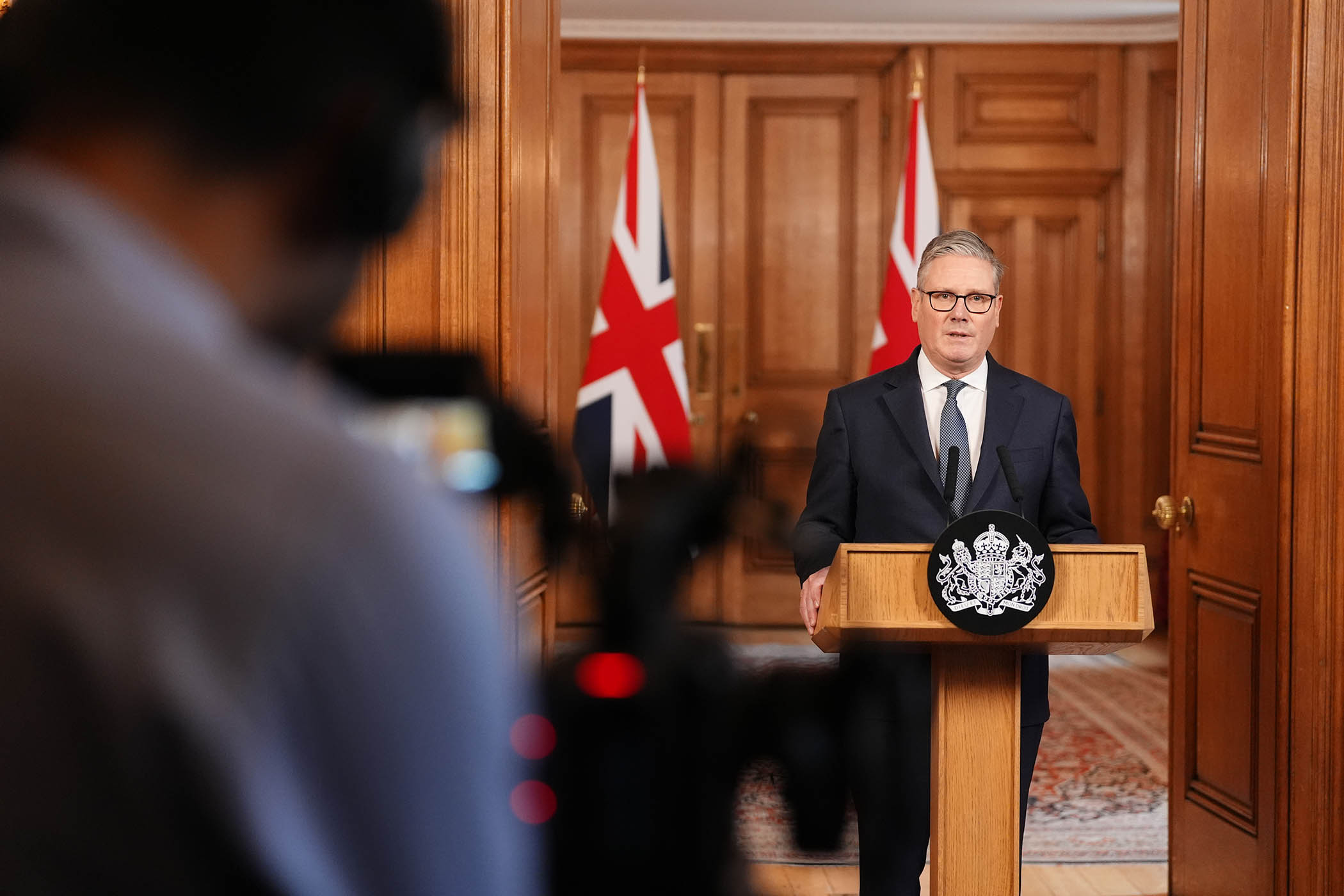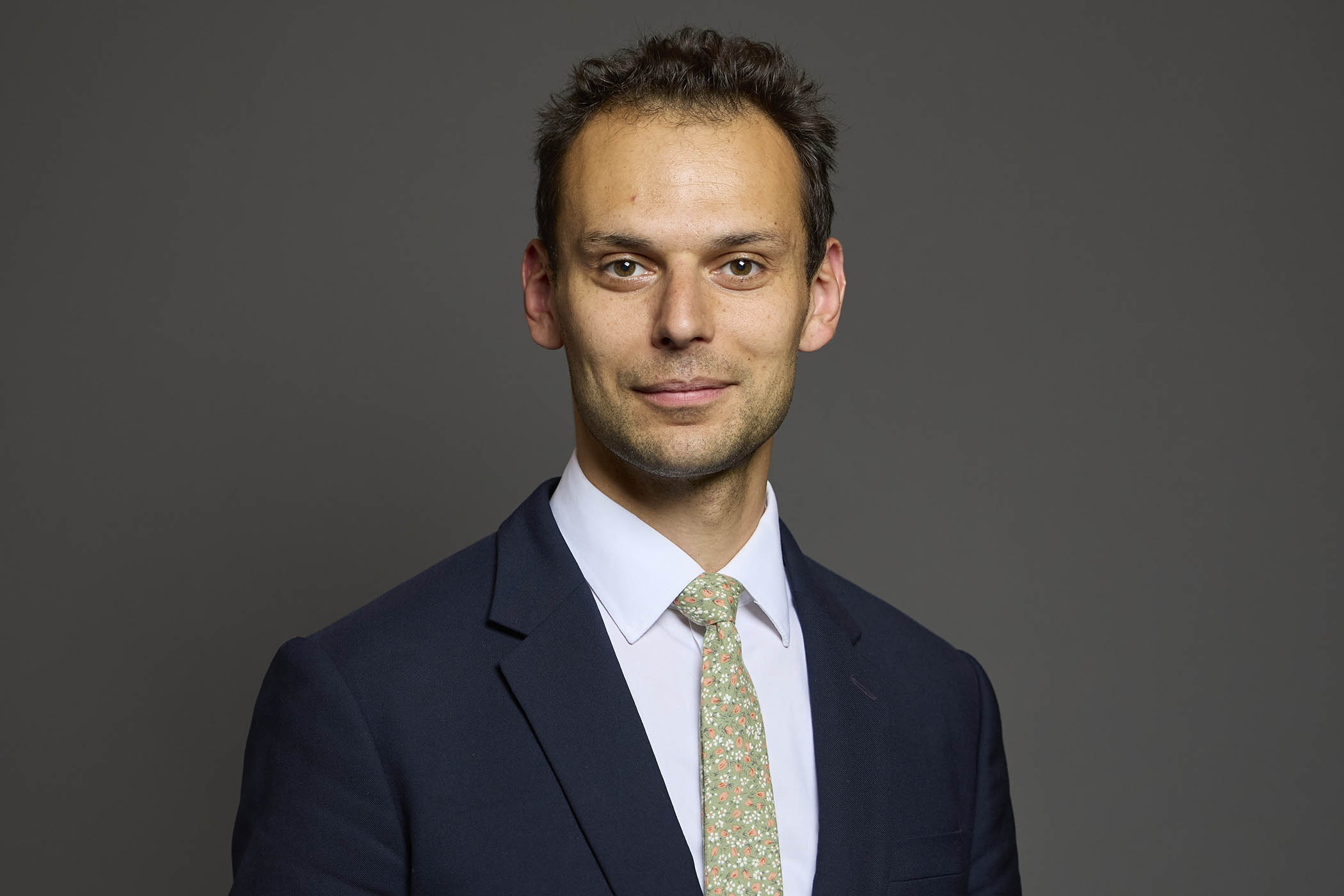Keir Starmer has defended the UK’s role in the Gaza peace deal, as he sets out how Britain will be involved in future efforts, including committing a further £20m in humanitarian aid.
Speaking from the House of Commons after returning overnight from talks in Egypt, the prime minister hailed the breakthrough for victims of the war on both sides, saying: “This has been two years of living hell.”
While he was quick to emphasise that “none of this would be possible without Donald Trump – this is his peace deal”, Starmer also set out key areas of UK involvement, a tacit acknowledgement that he had appeared to take a lesser role in the breakthrough.
“We worked behind the scenes for months with the US, Arab and European nations to help deliver a ceasefire, get the hostages out, get aid in and secure a better future for Israel, Gaza and the West Bank,” he told MPs. “I am proud of our contribution.”
Noting that maintaining peace would be as great a challenge, Starmer said the UK was “ready to deploy diplomacy and expertise in three key areas”: supporting the reconstruction of Gaza, supporting the transitional governance of the territory and ensuring security for a ceasefire monitoring process.
“Drawing on our experience in Northern Ireland, we stand ready to play a full role in the decommissioning of Hamas weapons and capability,” the prime minister added. “This is the first real chance we’ve had on a two-state solution since the Oslo Accords over three decades ago. So we are fully committed to this because a safe and secure Israel, alongside a viable Palestinian state, is the only way to secure lasting peace for the Middle East.”
It is unclear yet whether the UK’s skills will be called on, after a series of diplomatic snubs.
At a press conference yesterday, Trump praised Norway, Oman, Paraguay, Saudi Arabia, Spain, and the United Arab Emirates before mentioning the UK. At this point, Starmer approached the lectern, before the US president ushered him back.
On Sunday, the US ambassador to Israel, Mike Huckabee, called Bridget Phillipson “delusional”, after the education secretary had claimed the UK “played a key role behind the scenes in shaping this”.
But her words were echoed by Starmer in parliament on Tuesday afternoon, as he told MPs that the country’s top officials, including national security adviser Jonathan Powell, had played a “typical UK role – quiet behind the scenes, diplomatic but bringing round really helpful steps towards the desired end”.
Newsletters
Choose the newsletters you want to receive
View more
For information about how The Observer protects your data, read our Privacy Policy
In an apparent bid to smooth over diplomatic waters, Steve Witkoff, Trump’s Middle East envoy, had earlier posted a statement on social media saying: “I would like to acknowledge the vital role of the United Kingdom in assisting and coordinating efforts that have led us to this historic day in Israel. In particular, I want to recognise the incredible input and tireless efforts of national security adviser Jonathan Powell.”
But the Trump administration’s criticism of Labour’s actions predate this week.
The US secretary of state, Marco Rubio, was among those who criticised the UK and allies including France for their decision to recognise Palestinian statehood, suggesting that would embolden Hamas rather than increase the chances of peace.
Today, Starmer appeared to hit back at such criticism, saying: “We are in a position to play this role precisely because of the approach this government takes, and that does include our decision to recognise the state of Palestine.”
Photograph by Saul Loeb/AFP via Getty Images



